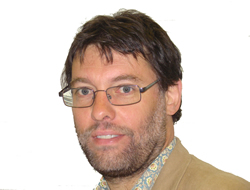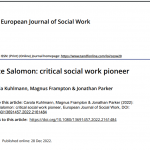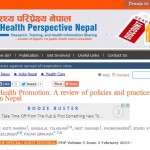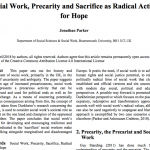


The Research Excellence Framework, or REF, is the new assessment method for publically funded research in universities. Its controversial new ‘impact’ element rates work based on evidence of social, economic or cultural benefits generated from it. But how easily can such things be quantified, particularly in applied academic subjects like social work?
Professors Jonathan Parker and Edwin van Teijlingen from Bournemouth University have addressed these questions in their paper ‘The Research Excellence Framework (REF): Assessing the Impact of Social Work Research on Society’, published in Practice: Social Work in Action.
They argue that ‘the framework raises doubts about whether it is possible to capture fully the impact of social work research at all, and social work itself for that matter’, and stress that some pathways need to be identified to do this.
In suggesting ways to evidence impact, such as primary evaluative research, Parker and Van Teijlingen also outline the stumbling blocks. There are data protection laws and the expense and time of tying up research evaluation with another research project.
The solution, they say, is for social work research to be built and undertaken in partnership with social care agencies; that impact is everybody’s concern and practitioners and those who use social work services and their carers have a role to play in its creation and identification.
Parker and Van Teijlingen acknowledge that the REF will promote critical-thinking, engage practitioners and address the challenges of public spending restraint, but express a deep-seated concern that this new method of assessment will mark a loss of ‘conceptual, theoretical and critical’ research.
Although assessing research through improved social, economic, health, and environmental aspects of life is unlikely to be questioned, Parker and Van Teijlingen strongly argue that it should not be the only set of research outcomes recognised. They argue that if the REF approach becomes common currency, ‘society is likely to lose the deeper understandings and meanings that have permeated thinking and, no doubt practice and behaviour.’
Both firmly believe BU’s research programme designed to enhance social work practice through continuing professional education has changed practice and influenced policy, as well as numerous other benefits to culture, public services, health, environment and quality of life.
 New BU Social Work publication
New BU Social Work publication Call for EoIs: Impact Champion for UOA 20 (Social Work and Social Policy)
Call for EoIs: Impact Champion for UOA 20 (Social Work and Social Policy) Working towards research impact in Nepal
Working towards research impact in Nepal Social Work, Precarity & Sacrifice as Radical Action for Hope
Social Work, Precarity & Sacrifice as Radical Action for Hope










 Upcoming opportunities for PGRs – collaborate externally
Upcoming opportunities for PGRs – collaborate externally BU involved in new MRF dissemination grant
BU involved in new MRF dissemination grant New COVID-19 publication
New COVID-19 publication Conversation article: London Marathon – how visually impaired people run
Conversation article: London Marathon – how visually impaired people run MSCA Postdoctoral Fellowships 2024
MSCA Postdoctoral Fellowships 2024 Horizon Europe News – December 2023
Horizon Europe News – December 2023